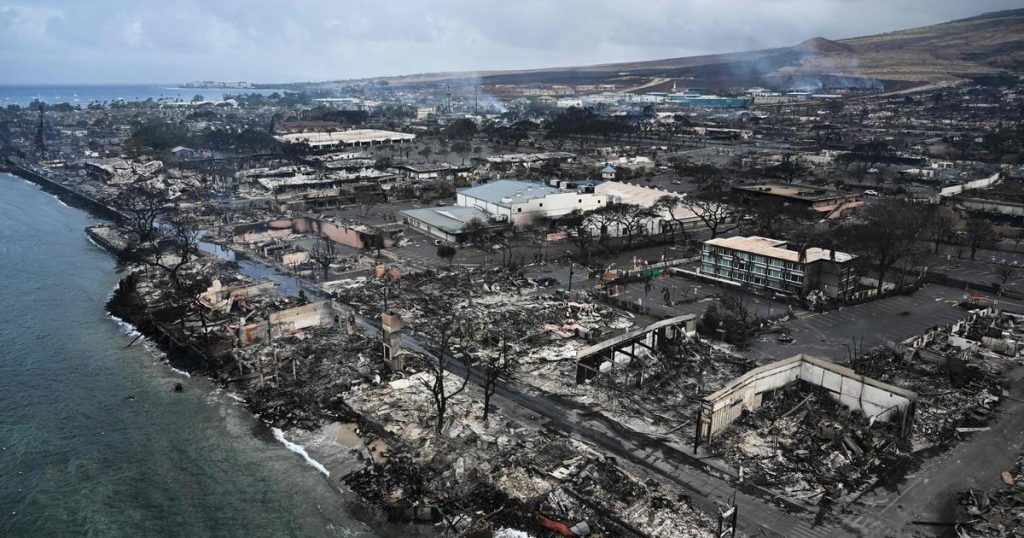A New Chapter for Maui: Understanding the Hawaii Supreme Court’s Ruling
On August 7, 2023, the Hawaiian island of Maui was forever changed by one of the deadliest wildfires in U.S. history. The catastrophic fire, which claimed over 100 lives, destroyed thousands of properties, and caused an estimated $5.5 billion in damage, left the historic town of Lahaina in ruins. In the aftermath of this tragedy, thousands of lawsuits were filed against various defendants, including Hawaiian Electric Company, a power utility accused of sparking the blaze. After months of legal battles, a $4 billion settlement was announced last summer, offering a glimmer of hope for the victims and their families.
However, the settlement was put in jeopardy when insurance companies insisted on their right to pursue separate legal actions against the defendants to recoup money they had paid out to policyholders. This legal process, known as "subrogation," became a major roadblock in finalizing the deal. On Monday, the Hawaii Supreme Court ruled that insurance companies could not bring their own lawsuits against those held responsible for the wildfire, clearing a critical hurdle and allowing the settlement to move forward.
The Impact of the Wildfire: A Community in Crisis
The 2023 Maui wildfire was a devastating event that shattered lives and communities. It destroyed entire neighborhoods, displacing families and leaving many without basic necessities. The historic town of Lahaina, known for its cultural significance and charm, was particularly hard hit. The fire also caused widespread economic devastation, impacting local businesses and the island’s tourism industry. For the survivors, the emotional toll of losing loved ones, homes, and livelihoods has been immense.
In the months following the fire, attorneys representing the victims filed hundreds of lawsuits against the defendants, including Hawaiian Electric, the state of Hawaii, Maui County, and Kamehameha Schools. These lawsuits sought accountability and compensation for the losses suffered. The $4 billion settlement, while not enough to fully compensate for the irreversible damage, was seen as a necessary step toward justice and rebuilding.
The Legal Battle: Insurance Companies and Subrogation
The Hawaii Supreme Court’s ruling addressed a critical question: whether state laws limiting insurance companies’ ability to pursue independent legal actions against defendants apply not just to health care insurance but also to casualty and property insurance. The justices ruled that these laws do apply, effectively preventing insurance companies from pursuing separate claims to recoup their payouts.
Insurance companies argued that subrogation is essential to offset the costs of catastrophic events and prevent skyrocketing premiums. They claimed that allowing them to recover money from the defendants would help maintain affordability for policyholders. However, plaintiff attorneys warned that if insurance companies were allowed to pursue separate legal actions, it could drain the settlement funds available to victims and lead to prolonged litigation. This would have delayed much-needed financial relief for those already suffering unimaginable losses.
The Settlement and Its Significance
The $4 billion settlement represents a major milestone in the long and arduous journey toward justice for the victims of the Maui wildfire. While the amount is far from adequate to fully compensate for the losses incurred, it is a crucial step in providing financial support to those affected. For many, the settlement offers a sense of closure and a foundation to begin rebuilding their lives.
Key defendants in the case, including Hawaiian Electric Company, the state of Hawaii, Maui County, and Kamehameha Schools, agreed to pay into the settlement fund. Attorneys for the plaintiffs acknowledged that accepting the deal was necessary, as Hawaiian Electric, the primary defendant, was at risk of bankruptcy. Without the settlement, victims might have faced even greater delays and uncertainty in receiving compensation.
The Role of Key Stakeholders
The ruling has been met with relief and gratitude from the plaintiffs and their attorneys. Gerald Singleton, one of the attorneys representing the victims, expressed cautious optimism, stating that the ruling allows the settlement to "take the next step forward." Similarly, Gov. Josh Green welcomed the decision, emphasizing that it will help the community heal and recover more quickly.
For the insurance companies, the ruling is a setback. While they acknowledged the court’s decision, they did not rule out the possibility of seeking review at the U.S. Supreme Court. Insurers have already paid out more than $2.3 billion to policyholders affected by the wildfire and expect to pay an additional $1 billion. They argued that subrogation is a fair and necessary process to recover these costs and prevent higher premiums for policyholders.
Looking Ahead: Rebuilding and Healing
The Hawaii Supreme Court’s decision marks a turning point in the recovery process for Maui. With the settlement now able to proceed, the focus will shift to the administrative process of determining individual awards based on the facts of each case. This process will ensure that compensation is distributed fairly and efficiently to those who need it most.
For the victims of the wildfire, the road to recovery will be long and challenging. The loss of life, property, and community cannot be fully restored, but the ruling offers hope that some measure of justice and financial support is on the way. As the people of Maui work to rebuild their lives and their island, they do so with the knowledge that their voices have been heard and that their resilience will guide them through the healing process.
In the words of attorney Jesse Creed, who lost his own home in a recent wildfire in Los Angeles, "They need every penny to restitch the fabric to bring the community back together." The Hawaii Supreme Court’s ruling is a step in that direction, providing a renewed sense of hope for a brighter future for Maui.












